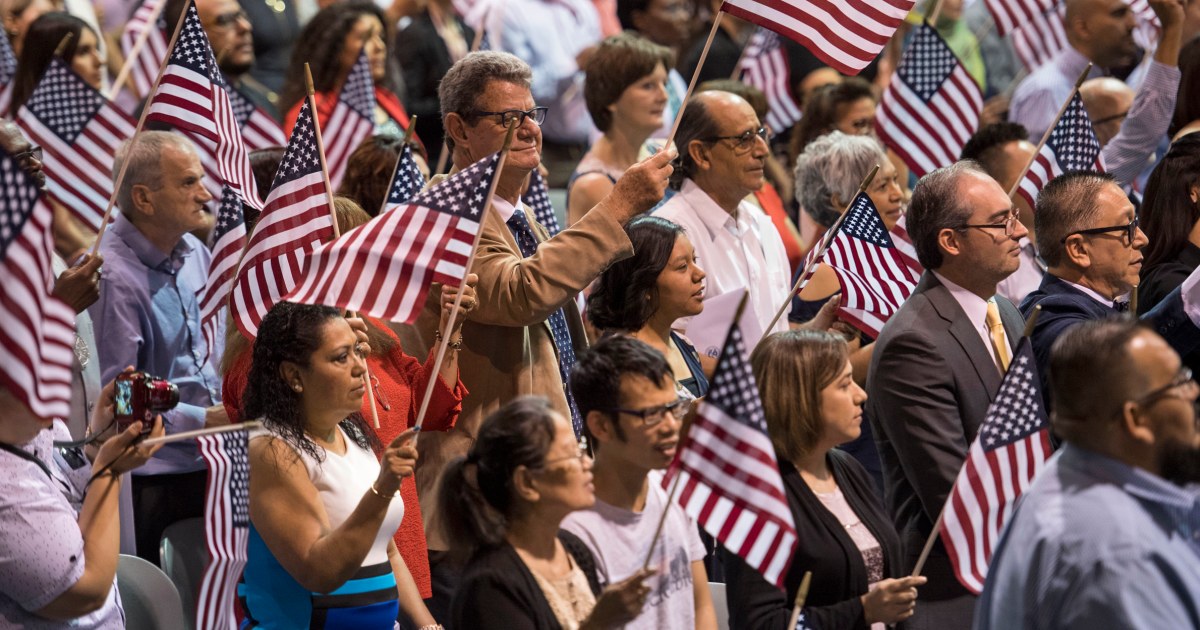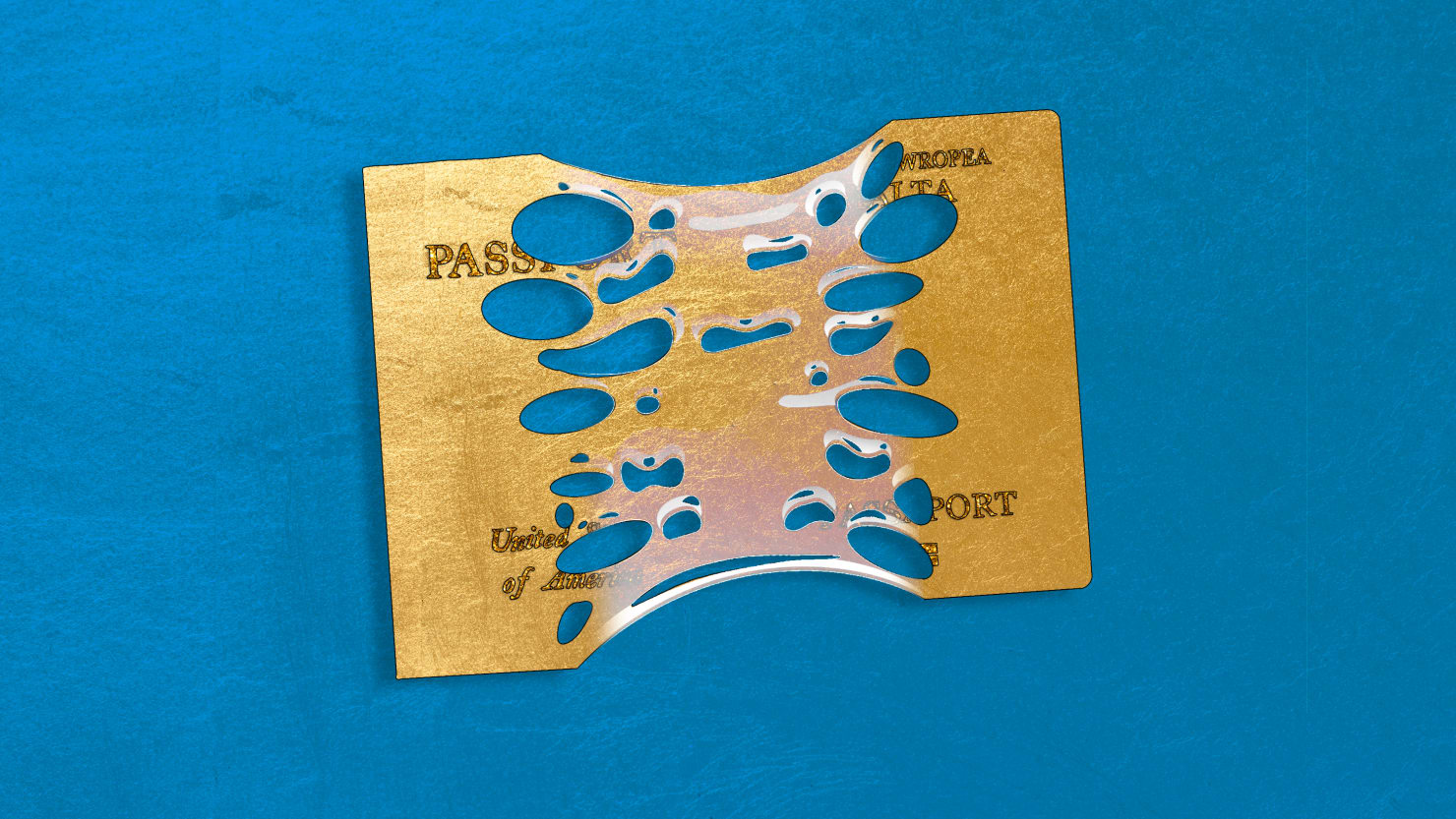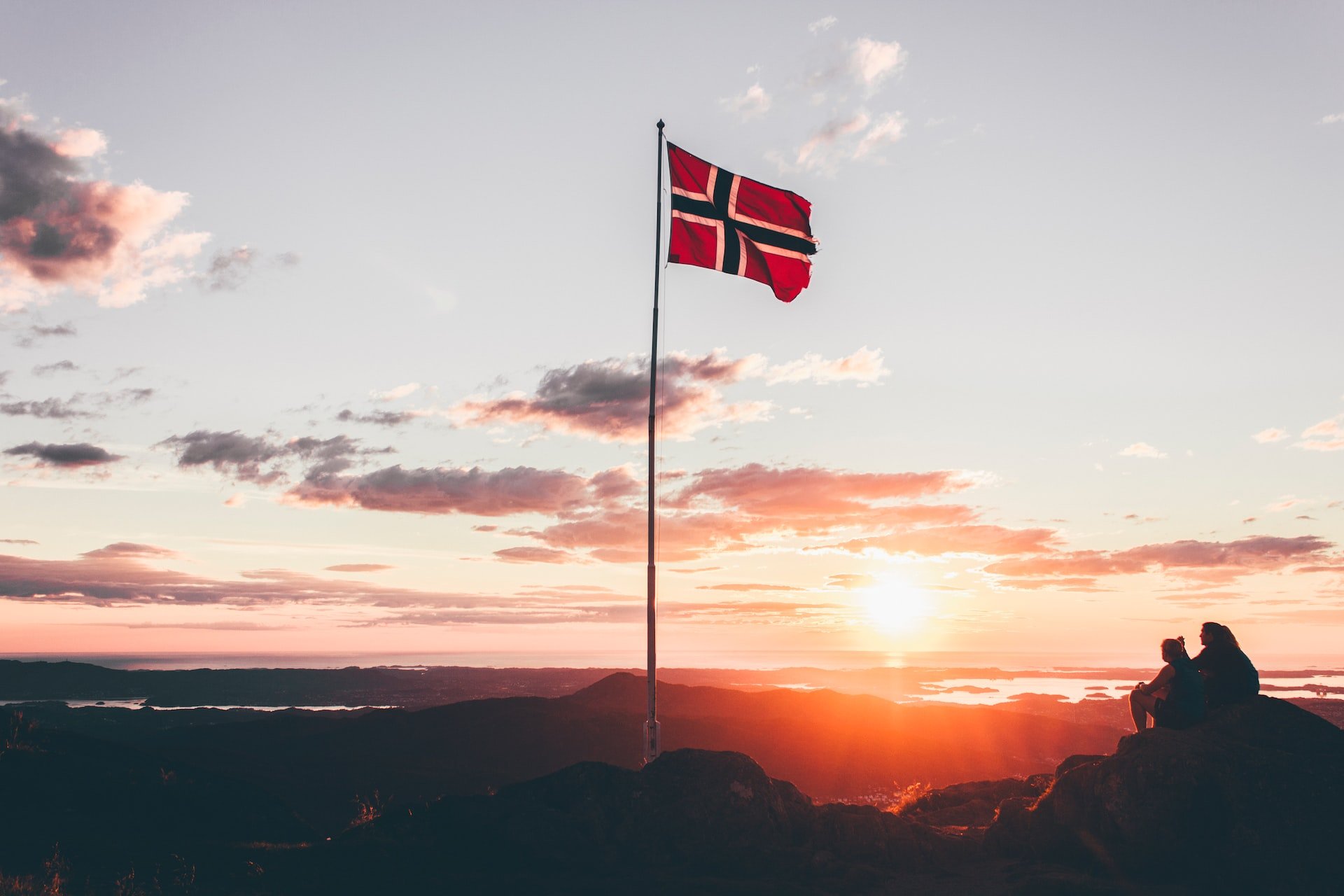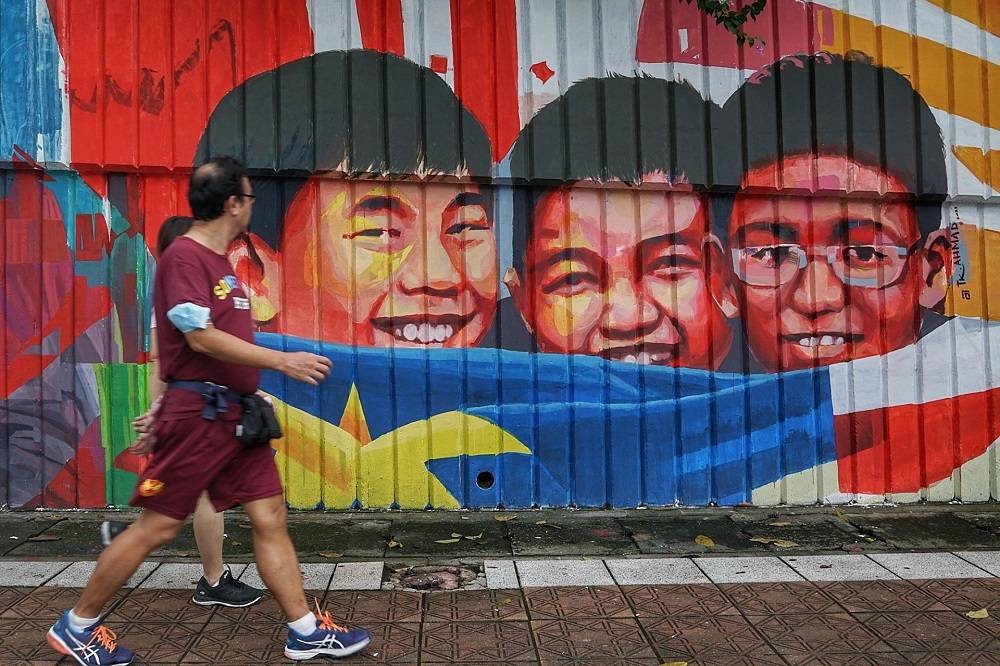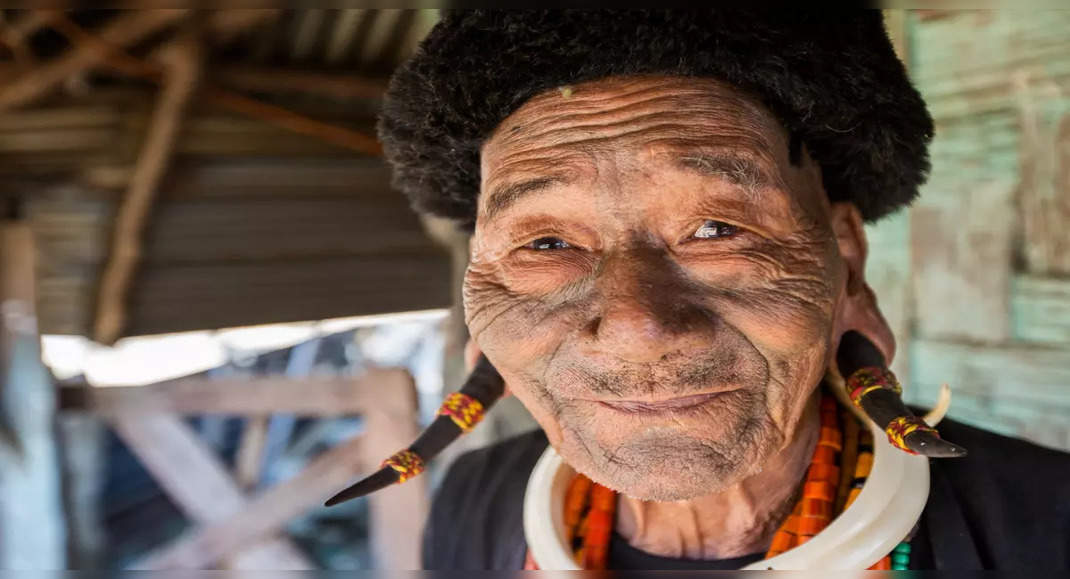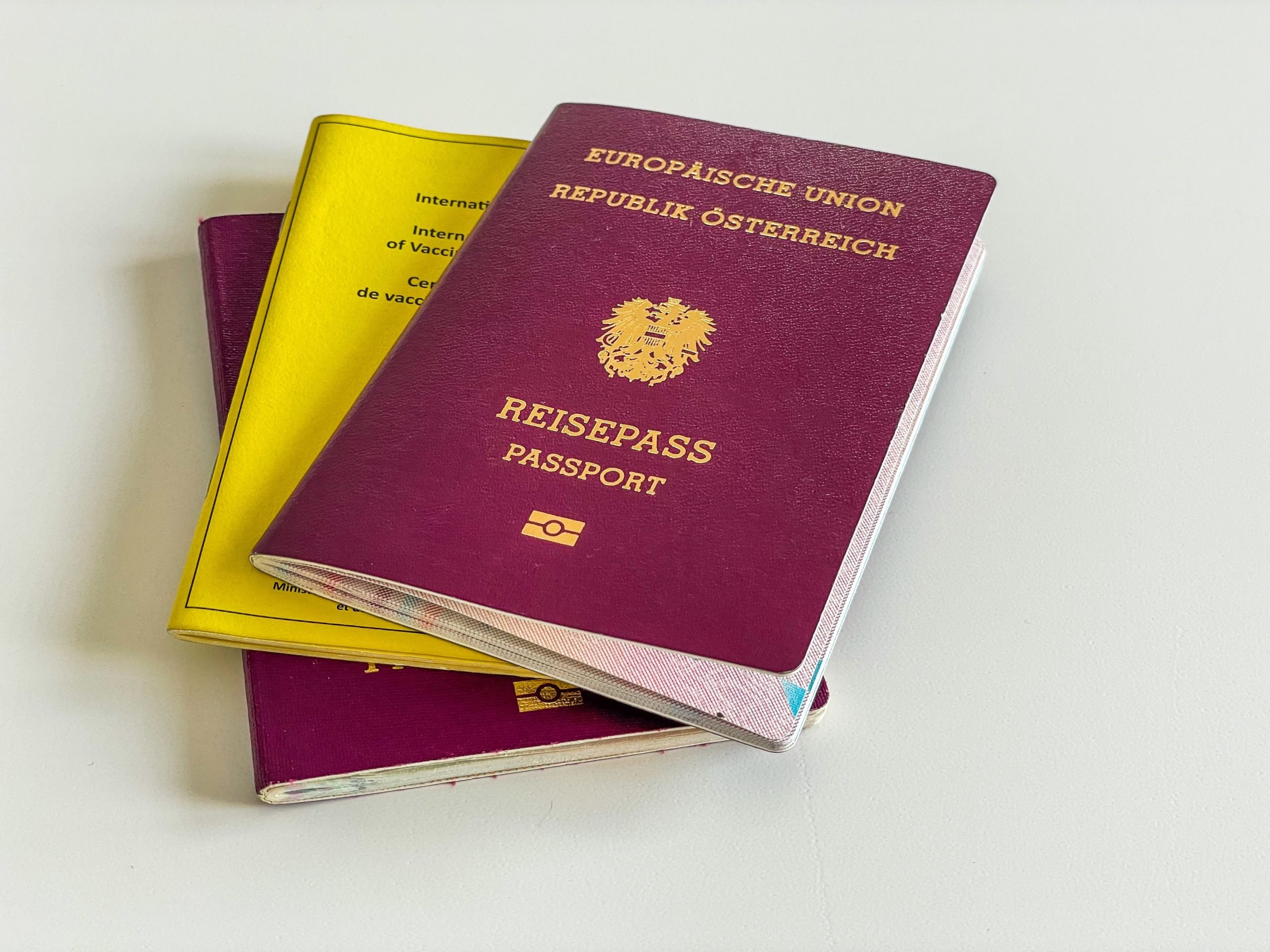- PolyPassport
- Posts
- A foodie's recipe for Italian citizenship. It's quick—but not easy.
A foodie's recipe for Italian citizenship. It's quick—but not easy.
Katie Quinn braved a pandemic and (a lot of) paperwork.

On the docket today:
How to clinch Italian citizenship in 12 weeks. "I mean, that's about as fast as it could go." Italian-American food reporter Katie Quinn tells all in an in-depth report.
Foodie Katie Quinn has a recipe for getting Italian citizenship. It's quick—but not easy.
Gourmands know Katie Quinn well. Equal parts food journalist and YouTuber, she broadcasts recipes, food musings, and cuisine-inspired travels to millions of people around the world.
She’s also authored two books, including one that celebrity chef Rachael Ray says will be on her bookshelf for the rest of her life. High praise.
But in recent years, Katie has also earned a following from another group entirely: those wanting or holding an Italian passport on the basis of descent. According to estimates, in the United States alone there are around 17 million people eligible for ancestry-based Italian citizenship.

Katie in her element. Credit: @qkatie on Instagram
Quinn is the first to suggest she’s an unlikely poster child for cittadinanza italiana. Her grandmother was a first-generation Italian-American, but the family connection with Italy—genetically and otherwise—waned with each successive generation.
“We were not incredibly culturally Italian-American,” she says of her upbringing in Athens, Ohio.
Things took a decisive turn during a research trip to southern Italy, where a hunt for rarefied local wines (uhh, how do we sign up for that gig?) became a quest to rediscover her roots.
At the time she was near Tursi, a small hilltop city home to little more than 5,000 people. Once a provincial capital in the ancient days of the Byzantine Empire, it also happens to be the birthplace of Katie's great-grandfather.
She journeyed to Tursi to track down his birth certificate and bring it home as a family keepsake. It took trial and error and a good deal of patience, but Quinn finally got hold of the document. That’s when “the seed was planted,” she recalled. “I realized, ‘whoa, with this piece of paper I could apply for Italian citizenship.’”
Italy’s nationality law is complex, but for descendants of Italian emigrants it is one of the most generous in the world.
Unlike many other countries, Italy does not have a generational "cap" on eligibility. Generally speaking, you can acquire Italian citizenship even if your great-great grandfather was Italian, provided you establish that neither he nor his descendants relinquished Italian citizenship before your birth.
The same applies to descendants of an Italian great-great grandmother, but she must have been born after 1948.
If someone in your family line naturalized in his or her newly adopted country before you were born, or the continuity of citizenship is otherwise "interrupted," you can still apply for citizenship after just three years of living in Italy.
Italy’s passport is ranked 4th in the world, making visa-free travel possible in 189 countries. This is on top of 27 nations in the European Union where Italians can live and work without restriction.
Katie Quinn had a new project and she dove right in. Based in London at the time, she enlisted her mom and grandma across the pond. Together they began amassing mountains of documents to prove Katie's lineage and clinch a passport.
As a team they were making headway, with Katie's mother doing a lot of the legwork. But it wasn't easy navigating the bureaucracy, especially without the benefit of Italian language skills (for Katie, that came later).
It was time to bring in the big guns, and Katie knew it. "Crap," Quinn remembers thinking. "I can't do this alone."
Quinn took to social media and combed through a popular Facebook group where ancestral Italians exchanged tips on becoming legally Italian, for example, by hiring an in-country agency.
One firm stood out. They were located in a part of southern Italy adjacent to Katie's ancestral village, and their offer was compelling: if she could get herself to Italy and become a legal resident of the local commune, they could make her a citizen in no time at all.
But this was the height of the COVID-19 pandemic. The world was shutting down and borders were slamming shut. Traveling anywhere was hardly a given. Ultimately, personal circumstances would push them to take a leap of faith.
The economy was in free fall, and like so many others at the time, Katie's husband lost his business. This also meant they lost something even more precious: their UK visas and the legal right to remain in the country.
So they had a choice. Do they cut their losses and return to the United States? Or do they make an extraordinary decision in an extraordinary time, and move to Italy?
In November 2020, they made their decision. They packed their bags for Trani, on Italy's southeastern coast, and never looked back.
When the couple arrived, the agency helped Katie find a local apartment and establish residency. That was the first step in the process.
Second, and arguably the hardest part, they helped her fill out and submit the paperwork building a case for citizenship. Every official record in her file, be it a birth certificate or death notice, had to show a direct genealogical line to her great-grandfather.
Then the agency put its local contacts to work. They knew exactly which levers to pull and when, activating a Rolodex that only a local agency with years of experience can have. "They literally knew the bureaucratic hands on this process," Katie said. "As with so many things in life, a lot of it is relationships."
She received citizenship only three months later, a blazingly fast turnaround given that applicants regularly report wait times of up to two years or even longer.
The recipe for success was simple. "It will take longer if you do it, the quote unquote 'traditional route' through the consulates. It will be faster if you do it from Italy, with setting up residency there," Katie told PolyPassport. "A hundred percent, it went faster for me because I worked with this agency."
The day her passaporto arrived, Quinn couldn't help but get emotional. Her grandma, whose lineage and support throughout this process were instrumental to unlocking citizenship, lost her battle with COVID-19 just days before. "I felt a little bit like she went up to heaven and was like, 'all right, let's get this, let's get this for my girl.'"
Her grandmother's legacy lives on in Katie, and in more ways than one: not just as an Italian citizen, but also as a new mother. Her baby daughter Serafina—named after the little one's great-grandmother—will inherit a connection to the old country that goes beyond a passport.
"It really made me feel like, 'okay, I'm continuing this. I am continuing this in in my family and in my kids and in my grandkids," Katie said. "[Serafina] will have her Italian citizenship and I'm going to make sure that Italian—the language, the culture, and the place—are a part of her life."
Just as importantly, like her mother, little Serafina will come to have global opportunities that vastly exceed many of her peers. "I know I've done everything in my power to open the world to me and my family," Katie beamed.
She most certainly has. The couple now lives in Toronto, where their daughter was born a Canadian citizen.
Three passports. 29 countries. Endless potential.
Other headlines
Chatter
Always remember that with second citizenships - either with an investment or through a digital nomad visa - you are not the only one who wants it. Most of the time, countries themselves want you to get their residence.
— Nomad Capitalist (@nomadcapitalist)
5:00 PM • Sep 7, 2022
Quote of the week
"Refugees are not a burden. We have skills to offer and above all else, we want to contribute to the development of our host countries."
